CSDE Welcomes 3 New Research Affiliates
|
CSDE is pleased to introduce three of our new UW Research Affiliates! Jessica Acolin (Postdoctoral Fellow, Psychiatry and Behavioral Sciences) focuses her work on understanding how systemic, social, and environmental factors shape mental and behavioral health outcomes, with a particular interest in climate change impacts on youth and young adults. Kamryn Morris’s (Assistant Professor, School of Social Work) research seeks to promote thriving among Black youth through supporting school belonging and improving school climate. Yanfang Su’s (Assistant Professor, Global Health) research focuses on three areas: 1) economic evaluation of healthcare systems, including analysis of equity, supply, demand, costs, and quality; 2) public policy evaluation; and 3) global health and population measures. Learn more about each affiliate in the full story!
(read more)
|
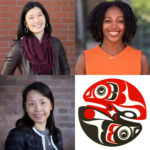 |
Weng Named as Fulbright Scholar for 2025-2026
|
CSDE Affiliate Yen-Chu Weng and three other UW faculty members have been selected as Fulbright Scholars for 2025-2026. Fulbright Scholars are college and university faculty, administrators, researchers, and professionals who will travel internationally to build their skills and connections, gain valuable insights, and return home to share their experiences with their colleagues, students, and more. Dr. Weng, who is an assistant teaching professor in the College of Environment, will be traveling to Japan to share the American experience in environmental conservation, movements, and governance with students and scholars. Congratulations Dr. Weng! To learn more about this program, visit the story to read more.
(read more)
|
 |
Rokem Publishes Editorial Article in Aperture Neuro on Sociotechnical Elements of Data Driven Research in Human Brain Mapping
|
CSDE Affiliate Ariel Rokem recently published an editorial titled, “Human brain mapping at the Singularity” in Aperture Neuro, an open access peer-reviewed online journal affiliated with the Organization for Human Brain Mapping. In this editorial, Dr. Rokem analyzes the progress that has been seen in advancing Frictionless Reproducibility through open data, code re-execution, and the adoption of the common task framework. He also discusses the future of data-driven research in neuroimaging. To learn more about Dr. Rokem’s research, visit the link to read the full editorial.
(read more)
|
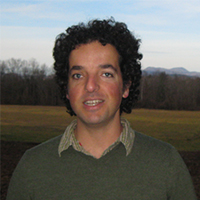 |
Swanson Named on Population Research and Policy Review Top Authors Lists and Presenting at FSCPE Research Committee Monthly Meeting
|
CSDE External Affiliate David Swanson was recently named as a top author ranked by citations and articles in Southern Demographic Association’s official journal, Population Research and Policy Review. Dr. Swanson ranked first in top authors by articles with 14 articles and ranked fourth in top authors by citations with 354 citations. Congratulations Dr. Swanson! To view the full list of top authors ranked by articles and citations, visit the links.
Dr. Swanson will also be joining the Federal-State Cooperative Program for Population Estimates' (FSCPE) research committee monthly meeting to discuss his work on a new approach to probabilistic population forecasting on Tuesday, July 15th from 10:30AM - 11:30AM Pacific Time / 12:30 PM - 1:30 PM Central Time via Zoom. To provide more context for this presentation, you can reference Dr. Swanson's work on this topic through his PowerPoint presentation and/or his research paper. To join this meeting via Zoom, click this link to join.
(read more)
|
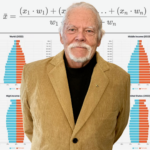 |
Rao Publishes Article in Sankhya B – Springer
|
CSDE External Affiliate Arni Rao (Medical College of Georgia) published an article in Sankhya B – Springer titled “Mathematical Demography” which spans 98 pages. This article provides a detailed account of recent advancements in the field of mathematical demography combined with classical theories of stationary and stable population dynamics. This article includes the Euler-Lotka equations and life tables as a foundation of modern population models, the classical Markov chain theory, birth-death processes, pure birth processes, and branching processes. To learn more about Dr. Rao’s research, visit the link.
(read more)
|
 |
|
|
*New* June 2025 Open Letter – Bethesda Declaration
|
This spring workers from every center and institute at the National Institutes of Health wrote and signed an open letter to the leadership of NIH and HHS. You can read about their letter here.
(read more)
|
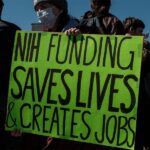 |
*New* Call for Abstracts – NAHDO’s 40th Annual Conference (Virtual)
|
“NAHDO at 40: Data and Policy Spanning the Decades”
Virtual Sessions: November 4-6, 2025
Priority Deadline: July 3, 2025
Final Deadline: July 15, 2025
NAHDO’s Program Planning Committee is now accepting abstract submissions for our 40th Annual Conference.
We’re seeking abstracts that explore cutting-edge work and innovative solutions across the spectrum of health data programs, especially as it applies to the collection, analysis and dissemination of claims and hospital data.
IMPORTANT NOTE: The submission form is only for individual presentation abstracts. If you have an idea for a (a) full session, (b) panel discussion, or (c) keynote speaker, please contact us directly at info@nahdo.org
You can submit a proposal to present on any health data topic that is of interest to our target audiences, however, this year's priority topic areas area:
(read more)
|
 |
Friends of NCHS: FYI’s and Opportunities
- Please consider responding to the call for comments on NCHS collections to explain how you use the data and why they are important. With the current scrutiny, it’s important to take advantage of opportunities like these:
- If you have been affected by disappeared or altered federal data, please see this note from a reporter:
- Hello – I’m Laura Santhanam, a reporter with PBS News who is working on a digital print article to help our audience understand the parameters of the crater made in the federal workforce, but especially as it has affected the collection and use of data, both in this present moment and how those changes are expected to radiate going forward. I am particularly interested in learning about specific examples of disappeared data or data that have been altered since late January. If you would like to share your story, I am here to listen. Please message me over Signal at 1-662-801-0334. Since things are moving so quickly, we are trying to gather these stories sooner rather than later. Any help is much appreciated.
- The FY26 budget request for NCHS if for a $175 million, which is a reduction from the current level of $187 million. The proposal also calls for NCHS to be moved to the to-be-created HHS Office of Strategy. Please continue to push for NCHS to be well funded.
(read more)
|
 |
CSSCR Workshop: Basics of STATA (7/15/25)
|
Description: This workshop will teach you how to get started using the statistical package Stata. The workshop will cover a) reading in data files from different sources, b) basic data manipulation, and c) some basic common statistical procedures. No previous Stata experience required.
- Instructor: Biying Zheng, CSSCR Consultant
- Date: Tuesday, July 15, 2025
- Time: 10:00am – 11:20am
- Location: Savery 121 (Small Lab)
- Register here.
(read more)
|
 |
Northwest Climate Adaptation Science Center Faculty Fellowship Program (7/15/25)
|
The Northwest Climate Adaptation Science Center is now accepting applications for its 2026 Faculty Fellowship Program, which supports research related to climate adaptation in Northwest natural and cultural resource management as well as training in the principles and practices of co-producing decision-relevant science. This is a “last-mile” program that funds activities aimed at enhancing the usability of existing research for natural resource managers. (read more)
|
 |
*New* CSSCR Workshop: Flow Maps in GIS: Visualization Migration Trade, and Networks – Part Two (7/21/25)
|
Flow maps are powerful tools for representing migration patterns, trade and shipping routes, disease spread, data and communication networks, and other measurable flows between locations. This workshop will build on the previous class, focusing on the principles and aesthetics of flow map visualization. We’ll continue using QGIS for beginners and ArcGIS for advanced users.
- Instructor: Yuying Xie, CSSCR Consultant
- Date: Monday, July 21, 2025
- TIme: 3:00pm – 4:20pm
- Location: Savery 117 (Big Lab)
- Register here.
(read more)
|
 |
*New* CSSCR Workshop: Introduction to Python (7/23/25)
|
This introductory workshop is designed to introduce you to basic Python commands, including reading in datasets, basic data manipulation, and common statistical tests and procedures. This will also cover common Python IDEs and comparisons to other popular programming languages such as Stata and R. This class will be ideal for users who have little to no experience with Python.
- Instructor: Tynan Challenor, CSSCR Consultant
- Date: Wednesday, July 23, 2025
- Time: 10:00am – 11:20am
- Location: Savery 121 (Small Lab)
- Register here.
(read more)
|
 |
*New* CSSCR Workshop: Data Wrangling in R (7/23/25)
|
This workshop will cover some of R’s useful tools for data management and exploration. Most of class will be devoted to learning Hadley Wickham’s excellent “tidyr” and “dplyr” packages. Attendees are assumed to have basic familiarity with R/RStudio.
- Instructor: Victoria Sass, CSSCR Consultant
- Date: Wednesday, July 23, 2025
- Time: 1:30pm – 2:50pm
- Location: Savery 117 (Big Lab)
- Register here.
(read more)
|
 |
Kaiser Permanente Center for Gun Violence Research and Education Program: 2025 Funding Opportunity (7/23/25)
|
The Kaiser Permanente Center for Gun Violence Research and Education is pursuing a world free of gun violence, where impacted communities drive the meaningful change needed for a healthy and safe society. Coordinated in collaboration with Health Alliance for Violence Intervention (HAVI), the Center endeavors to transform the gun violence research and education field.
The Center seeks to meet these needs by broadening the field of research to include more researchers and organizations that focus explicitly on healthcare approaches to addressing gun violence and work closely with communities affected by gun violence.
(read more)
|
 |
CO2 Foundation Funding Opportunity: Reducing the Threats of Extreme Weather Events (7/31/25)
|
The CO2 Foundation is excited to announce its third funding opportunity: Reducing the Threats of Extreme Weather Events.
In addition to the gradual climate changes of the last sixty years, we have seen recent surges in extreme weather that suggest an abrupt climate shift. For example, the annual tally of big windstorms in the US went from a baseline rate of 1.2 per year before 2008 up to 19 events in 2023, an order of magnitude more. This threat has a different time scale than gradual global warming. We must now prepare for big troubles in the next decade.
(read more)
|
 |
*New* County Health Rankings & Roadmaps 2025 Data Viz Challenge (08/01/25)
|
County Health Rankings & Roadmaps (CHR&R) is inviting original visualizations using CHR&R data to communicate the structural determinants of health, or the laws, policies, and power structures that drive health outcomes. We want to see how you use CHR&R (and other public data) to tell stories that make the forces that shape health visible.
We believe that working together amplifies impact. In this open call for data visualizations, we’re honoring the power of our connectedness — the reality that your eyes and experience create a unique perspective on the health story we share.
(read more)
|
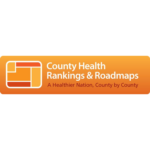 |
Corporate & Foundation Opportunities: Russell Sage Foundation Pipeline Grants Competition
|
Pipeline Grants Competition
Organization: Russell Sage Foundation
Award amount: $50,000
Deadline: 10/1/2025
Description: This initiative will support early-career scholars and promote diversity in the social sciences, including racial, ethnic, gender, disciplinary, institutional, and geographic diversity. Pipeline grantees are paired with mentors who offer advice on their projects and career development. The competition funds innovative research on economic mobility and access to opportunity in the United States. We are particularly interested in research focused on structural barriers to economic mobility and how individuals, communities and state entities understand, navigate and challenge systemic inequalities. Early-career faculty who have not previously received research grants (not counting a dissertation grant) or a visiting fellowship from RSF are eligible to apply.
(read more)
|
 |
*New* NIH Research on Addressing Violence to Improve Health Outcomes (10/05/2025)
|
The purpose of this Notice is to highlight interest in addressing the role of violence in health outcomes and integrating violence-related screening and interventions into health care settings. This Notice is to encourage intervention research focused on addressing exposure to violence – including but not limited to child maltreatment, intimate partner violence/teen dating violence, elder mistreatment, peer violence/bullying, and community violence – to improve individual-level health processes and outcomes. Read more here.
(read more)
|
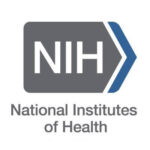 |
*New* Evidence for Action: Investigator-Initiated Research to Build a Culture of Health (Rolling)
|
Evidence for Action (E4A), a national program of the Robert Wood Johnson Foundation (RWJF), funds research that expands the evidence needed to build a Culture of Health. A Culture of Health is broadly defined as one in which good health and well-being flourish across geographic, demographic, and social sectors; public and private decision-making is guided by the goal of fostering equitable communities; and everyone has the opportunity to make choices that lead to healthy lifestyles. RWJF’s Culture of Health Action Framework, which was developed to catalyze a national movement toward improved health, well-being, and equity, guides E4A’s program strategy.
(read more)
|
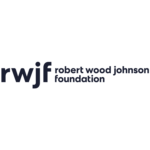 |
Share Your Story: Federal Grant Terminations and Data Restrictions
|
The Population Association of America (PAA) has updated the form used to collect details, on an ongoing basis, from members who have been adversely affected by actions taken by the Administration, including federal grant terminations and data restrictions. The revised form provides guidance and encourages individuals to share their stories, which will be featured in a regular newsletter designed to educate policymakers and the public about the consequences of these federal actions.
Please feel free to share this form with your colleagues.
(read more)
|
 |
Survey on Federal Data Use and Repositories
Recently, the Office of Research sponsored a panel and discussion on the challenges surrounding the loss of data, including data that is removed from publicly available sites, national surveys that are canceled, and standard survey measures or data changed for non-scientific reasons. In addition, the UW Libraries has been actively engaged in helping researchers find and preserve data. This survey, created jointly by the UW Faculty Council on Research (FCR), the UW Libraries, and the Office of Research, seeks to learn more about your research needs in this domain of concerns and challenges. FCR, the Office of Research, and the UW Libraries will summarize the results from this survey over the summer and present to the Faculty Senate in AUT 2025. We will use the survey results to inform efforts to safeguard data needed for research and to educate the UW community on alternative locations for accessing and securely storing data. (read more)
|
 |
Data Resource: Dewey Data
|
Dewey Data is a research platform that provides access to third-party datasets across a variety of data categories including foot traffic, construction permits, healthcare, workforce, consumer behavior, and transportation.
University of Washington faculty, students, and researchers are eligible for access and must register an individual account. Follow this link to learn about how to register.
(read more)
|
 |
Data Access With Federal Administration’s Transition
|
The challenges of data access during federal administrative transitions can happen every four years. What follows are some resources that might be useful. We will continue to update this blog post with new information. If you have any links that could be helpful, please send csde@uw.edu your updated and helpful information. We know that what follows may not provide you with the exact data you need, so let us know what you need and what’s missing and we can try to find where it is located.
(read more)
|
 |
Keeping Up With UW-Relevant Federal Policy Updates and Federal Administration Research Policy
UW’s Open Scholarship Commons Offer “Most Wanted” Seminars This Summer! Check it out!
Opportunities to Publish Research Policy Briefs with the Association of Population Centers
|
CSDE is a member of the Association of Population Centers, and through them can offer you or your colleagues the opportunity to have new or forthcoming research that you want to share with policymakers, journalists, educators, or other non-academic audiences. The Population Reference Bureau (PRB), in collaboration with APC, is working to improve the dissemination of population and reproductive health findings. If you have peer-reviewed research on population dynamics, population health, or reproductive health that you would like to share with a broader audience in an easily digestible format, APC and PRB may be able to help. To learn how, visit their website and take a look at recent research policy briefs.
(read more)
|
 |
Preprint Opportunities through Association of Population Centers
|
CSDE is a member of the Association of Population Centers and through them can offer you and your colleagues access to their preprint publishing platform. Research Scientists, Postdoctoral affiliates and faculty are invited to submit to the APCA Working Paper Series which gathers and disseminates original population science research papers. These working papers are authored or coauthored by scholars who are faculty or postdoctoral affiliates of the Association of Population Centers (APC) population centers.
(read more)
|
 |
Lynde and Harry Bradley Foundation Grants (Rolling)
|
The Bradley Foundation is a private grantmaking foundation that honors the principles and example of its namesakes, Lynde and Harry Bradley, by pursuing a mission to restore, strengthen, and protect the principles and institutions of American exceptionalism. The foundation has a rolling proposal process around grants for its Constitutional Order and Informed Citizens initiatives. Projects should have budgets between $25,000 and $200,000.
(read more)
|
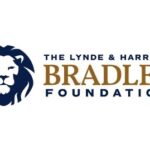 |
Sign up to join the Early Career listserv!
|
We invite early career faculty affiliates to join our new mailing list, csde_earlycareer. Among other things, this is the way to find out info about our quarterly Early Career Affiliate happy hours, and you won’t want to miss those! These will be a great way to meet up with other junior scholars in a fun and casual atmosphere over snacks and drinks. Who counts as early career, you ask? Typically we mean folks who are pre-promotion (i.e. assistant professor or equivalent), but we're not strict! Join the list here (Please note - this is for faculty only - we are strict about that. Sorry, all others!)
(read more)
|
 |
|
|

